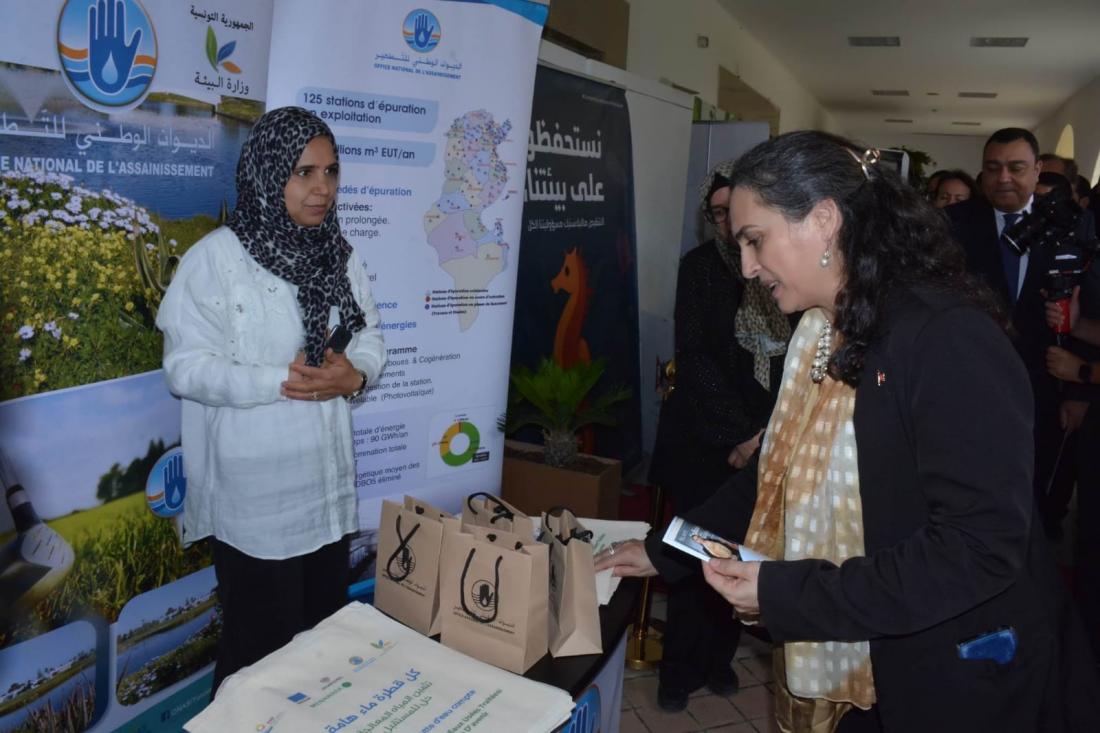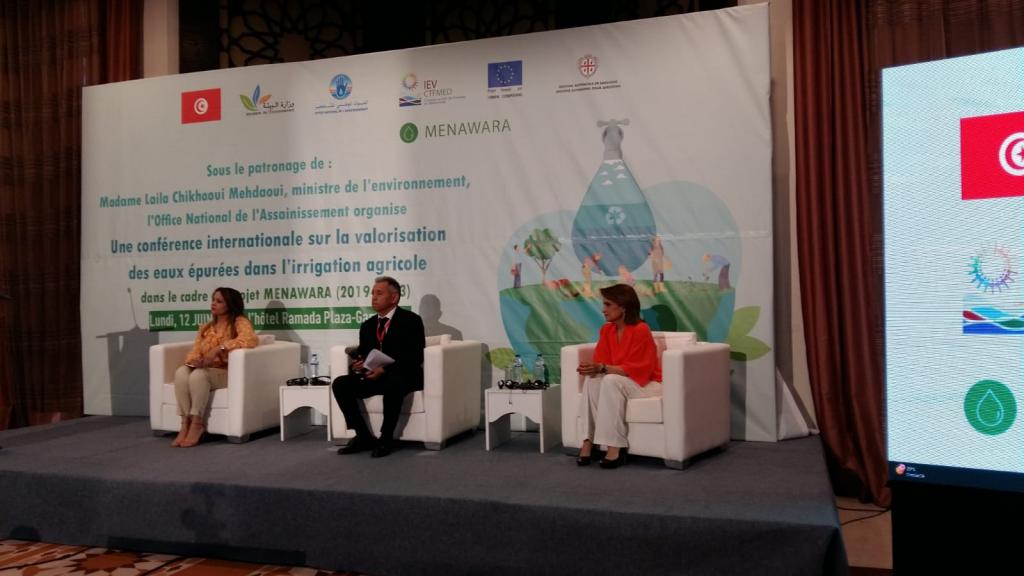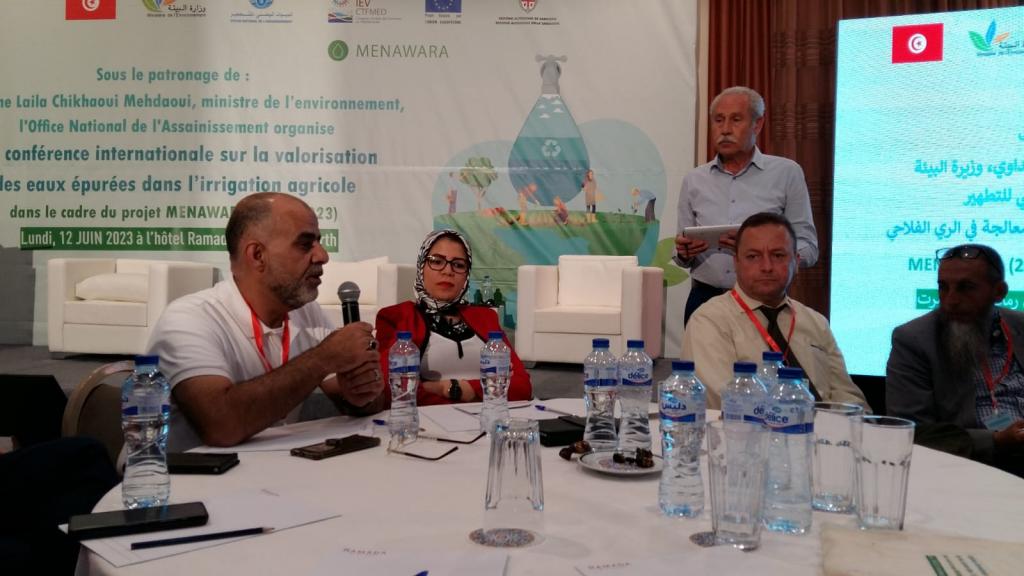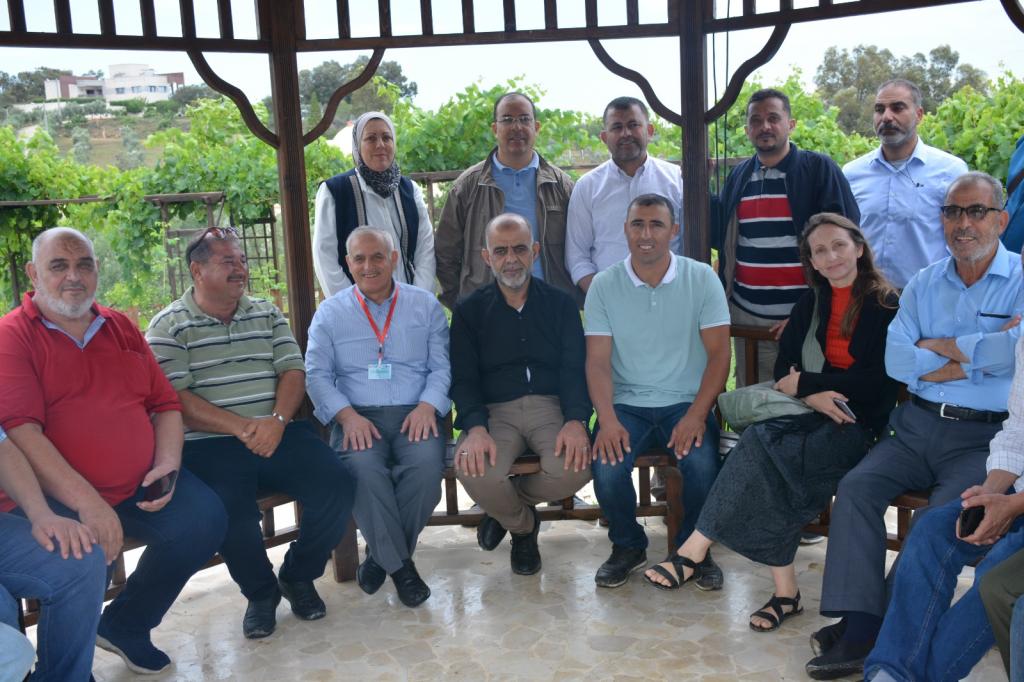MENAWARA at the international conference on the valorisation of treated wastewater in Tunisia.

The international conference on the valorisation of treated wastewater in agriculture took place in Tunis on 12th June 2023.
Supported by the Minister of the Environment, Leila Chikhaoui Mahdaoui, and the Minister of Agriculture, Water Resources, and Fishing, Abdelmonem Bellatti, the event brought together MENAWARA project partners and associated partners, key stakeholders from Tunisian academia, business companies, as well as farmers and farmers' associations from Tunisia, Palestine, and Jordan.

During the conference, the results of the MENAWARA project in Choutrana II, Sidi Amor, and Beni Hassen in Monastir were highlighted, including the findings of research works conducted at the different experimental sites by three university students.
The MENAWARA project played a crucial role in fostering collaboration and promoting the use of non-conventional water among various stakeholders:
1. Among the consortium: Scientific research institutions (AMAYA, Spain, and CIHEAM Bari, Italy) designed low-cost pre and post-treatments and irrigation methods tailored to the specific needs of the beneficiaries using the "fit for purpose" approach throughout the project.
2. Between non-traditional water providers and consumers, particularly farmers.
3. Between institutions focused on non-conventional water conservation, environmental development associations, and existing projects working towards optimal non-conventional water utilization to achieve the desired goals of valorization and reuse.
In Tunisia, training courses for farmers and technicians were conducted, and workshops were held with active institutions in the field. These events, along with experiences shared during the exchange in Jordan in May 2023 and the International Conference in Tunisia, helped strengthen cooperation among Mediterranean institutions and raised awareness about the importance of water resources, laying the foundation for a network centered around non-conventional water.
The cross-border exchange of experiences added value, contributing to the development of water sector technologies and methods and the establishment of a living lab in Choutrana II. The Living Lab, with its green area for scientific experiments, will foster environmental education for young people and adults.

The conference also addressed several important topics, such as the potential impact of networking to secure funding for scientific research in treated wastewater, the circular economy approach in treated wastewater management, the crucial role of renewable energies in valorizing treated wastewater, and mechanisms to encourage farmers to reuse treated wastewater. Recommendations arising from these discussions and two workshops on joint actions between institutions, the private sector, and civil society for valorizing treated wastewater, and farmers' concerns regarding its use and awareness-raising mechanisms, concluded the event.
Among the recommendations were:
1. Capitalizing on the MENAWARA project results by undertaking similar projects or agricultural development programs that support waste water treatment plant operators, extension workers, and farmers through training and awareness-raising initiatives for sustained treated wastewater usage.
2. Strengthening partnerships with research institutes to promote treated wastewater use, leveraging the networks established during the project.
3. Enhancing the legislative and regulatory framework to streamline procedures for treated wastewater reuse in the agricultural sector.
4. Encouraging treated wastewater storage at the field level by installing storage basins for farmers.
5. Promoting the creation of Agricultural Development Groups (GDA) to empower farmers
6. Strengthening the circular economy policy and implementing integrated projects based on treated wastewater reuse in agriculture.
Following the conference, a knowledge-sharing event was organized for farmers, technicians, and officials from Palestine and Jordan over the next two days, showcasing MENAWARA results in pilot areas and other best practices related to treated wastewater reuse. The experience was highly successful, fostering partnerships, friendships, and knowledge exchange in irrigation techniques with treated wastewater. Participants returned home enriched after participating in a such important occasion of collaboration.










